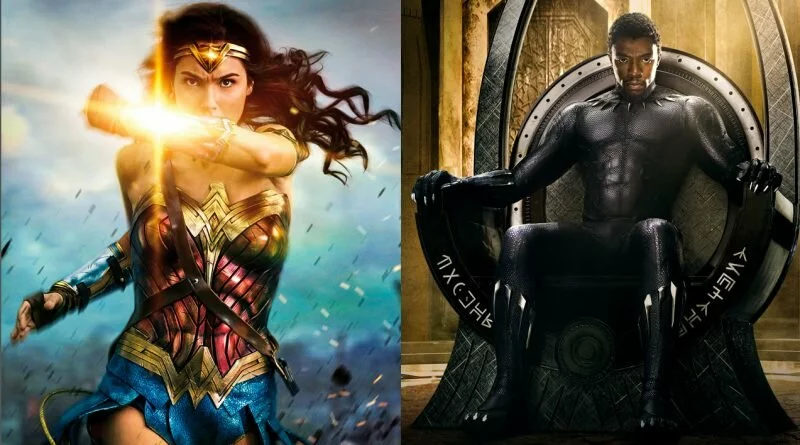What Has Wonder Woman and Black Panther Taught Us About the Superhero Genre Moving Forward?
SPONSORED CONTENT
The superhero genre is churning out the hits, with Wonder Woman becoming last year’s big winner. It was pegged here on Dad Geek as either a solid foundation for the Extended DC Universe or another disappointment in the weeks before its release. Fortunately, it turned out to be the former, ultimately raking in over $800 million (£572 million) worldwide. This year, Black Panther has also been very successful, amassing $780 million (£556 million) globally at the end of February according to a report by Forbes.

More than being moneymakers, both films are notable for having pushed the superhero genre away from the archetypical white male hero and introducing female and black characters as the lead characters in their respective films.

Women superheroes rock
Female superheroes have for so long been featured only as supporting characters, and often as part of a group of heroes, like Black Widow and Scarlet Witch in the Avengers series, or Storm and Jean Grey in the X-Men franchise. Even Wonder Woman made her first onscreen appearance as part of Batman v Superman.
One of the reasons for this, aside from the number of male heroes compared to female, is that previous solo heroine films had not done well. Both Marvel and DC (although not in the current cinematic universe for either) had flops with Elektra and, famously, Catwoman both being poorly received by critics and fans. Wonder Woman proved last year that with a top director (Patty Jenkins), female superheroes can earn a fortune and carry a potential franchise. The success of the Amazing Amazon was likely a big factor in why there are several female superheroes films lined up (Captain Marvel, Wonder Women 2) and more rumored (Black Widow, Phoenix).
Black superheroes matter
Like female superheroes, black superheroes have largely been marginalized in film, with only Spawn and Blade having their own notable stand-alone movies. Black Panther starring Chadwick Boseman has become one if Marvel’s most successful films in its franchise, and demonstrated that there is a large audience who want to invest in more diverse heroes.
Depth is possible
There is more to Wonder Woman and Black Panther than cool costumes, dynamic action, and nonstop explosions. Both films feature narratives that have a lot of depth. Wonder Woman touches on female empowerment, and issues on women’s rights and their previous standing in society. Black Panther, meanwhile, tackles, among others, cultural representation, girl power, and the African diaspora through Erik Killmonger’s plight. Both these films showed that superhero films are ready to tackle modern day issues while also being entertaining.
The genre is still trending up
The unprecedented success of both Wonder Woman and Black Panther is undeniable proof that the superhero genre is as robust as ever, with a future that looks even more lucrative. The popularity of the genre is sky high right now, and other industries are following suit. Most notably, the gaming industry has long been benefiting quite a lot from the unabated rise of the superhero genre, with a slew of games based on various superheroes. These include Injustice: Gods Among Us and Injustice 2, which both feature Wonder Woman, and Black Panther: Jungle Pursuit, a Marvel-made game based on the king of Wakanda.
It is clearly a great time to be a fan of the superhero genre, with several films slated for 2018. The incredibly buzz-worthy Avengers: Infinity War is coming this May, and will be followed a month after by Deadpool 2. Other superhero movies on the horizon are Ant-man and the Wasp in July, Venom in October, X-Men: Dark Phoenix in November, and Aquaman in December.

